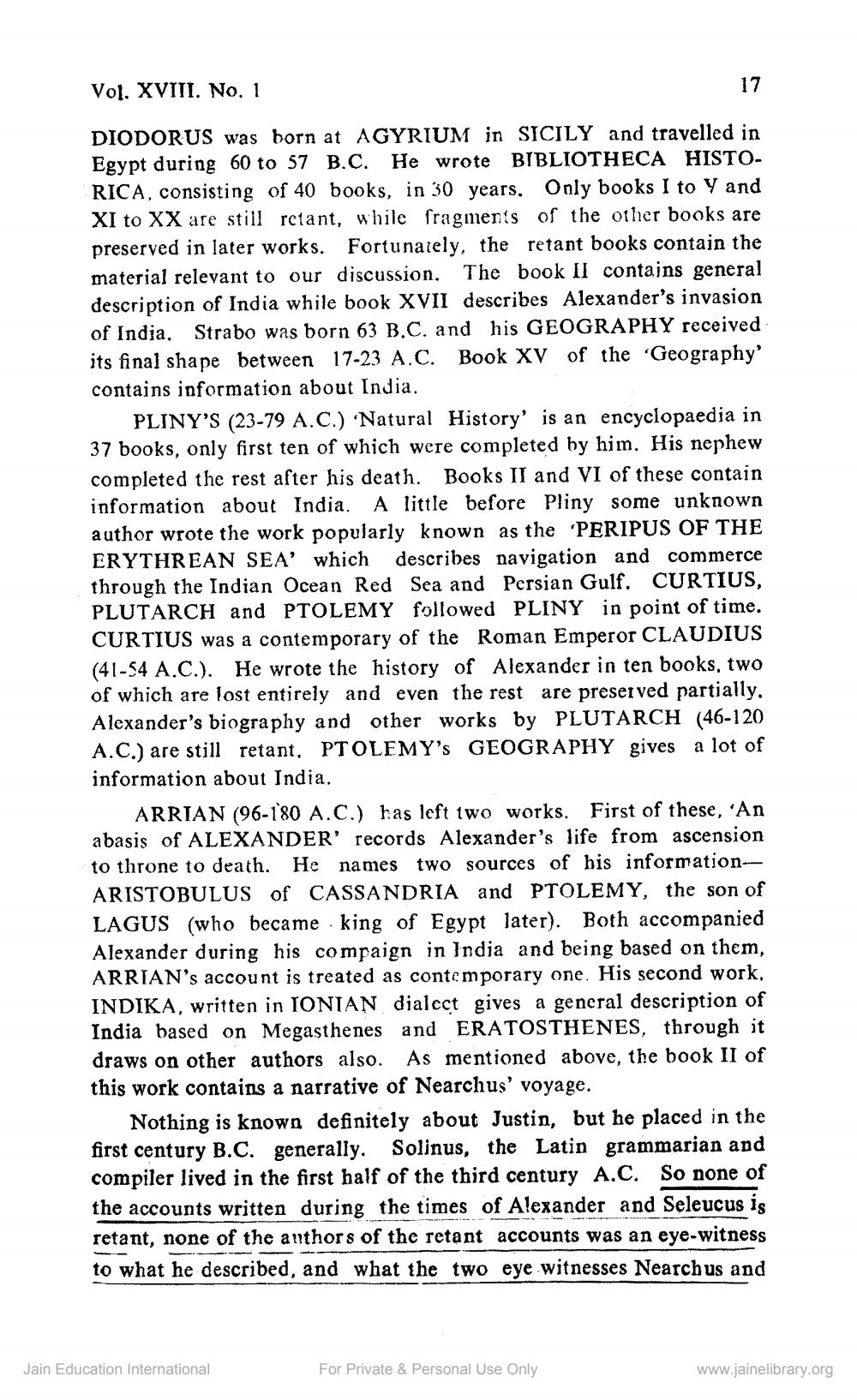________________
Vol. XVIII. No. 1
17
DIODORUS was born at AGYRIUM in SICILY and travelled in Egypt during 60 to 57 B.C. He wrote BIBLIOTHECA HISTORICA, consisting of 40 books, in 30 years. Only books I to Y and XI to XX are still retant, while fragments of the other books are preserved in later works. Fortunately, the retant books contain the material relevant to our discussion. The book II contains general description of India while book XVII describes Alexander's invasion of India, Strabo was born 63 B.C. and his GEOGRAPHY received its final shape between 17-23 A.C. Book XV of the 'Geography contains information about India.
PLINY'S (23-79 A.C.) Natural History' is an encyclopaedia in 37 books, only first ten of which were completed by him. His nephew completed the rest after his death. Books II and VI of these contain information about India. A little before Pliny some unknown author wrote the work popularly known as the 'PERIPUS OF THE ERYTHREAN SEA' which describes navigation and commerce through the Indian Ocean Red Sea and Persian Gulf. CURTIUS, PLUTARCH and PTOLEMY followed PLINY in point of time. CURTIUS was a contemporary of the Roman Emperor CLAUDIUS (41-54 A.C.). He wrote the history of Alexander in ten books, two of which are lost entirely and even the rest are preserved partially, Alexander's biography and other works by PLUTARCH (46-120 A.C.) are still retant. PTOLEMY's GEOGRAPHY gives a lot of information about India.
ARRIAN (96-180 A.C.) has left two works. First of these, An abasis of ALEXANDER' records Alexander's life from ascension to throne to death. He names two sources of his information ARISTOBULUS of CASSANDRIA and PTOLEMY, the son of LAGUS (who became king of Egypt later). Both accompanied Alexander during his compaign in India and being based on them, ARRIAN's account is treated as contemporary one. His second work. INDIKA, written in IONIAN dialect gives a general description of India based on Megasthenes and ERATOSTHENES, through it draws on other authors also. As mentioned above, the book II of this work contains a narrative of Nearchus' voyage.
Nothing is known definitely about Justin, but he placed in the first century B.C. generally. Solinus, the Latin grammarian and compiler lived in the first half of the third century A.C. So none of the accounts written during the times of Alexander and Seleucus is retant, none of the authors of the retant accounts was an eye-witness to what he described, and what the two eye witnesses Nearch us and
Jain Education International
For Private & Personal Use Only
www.jainelibrary.org




